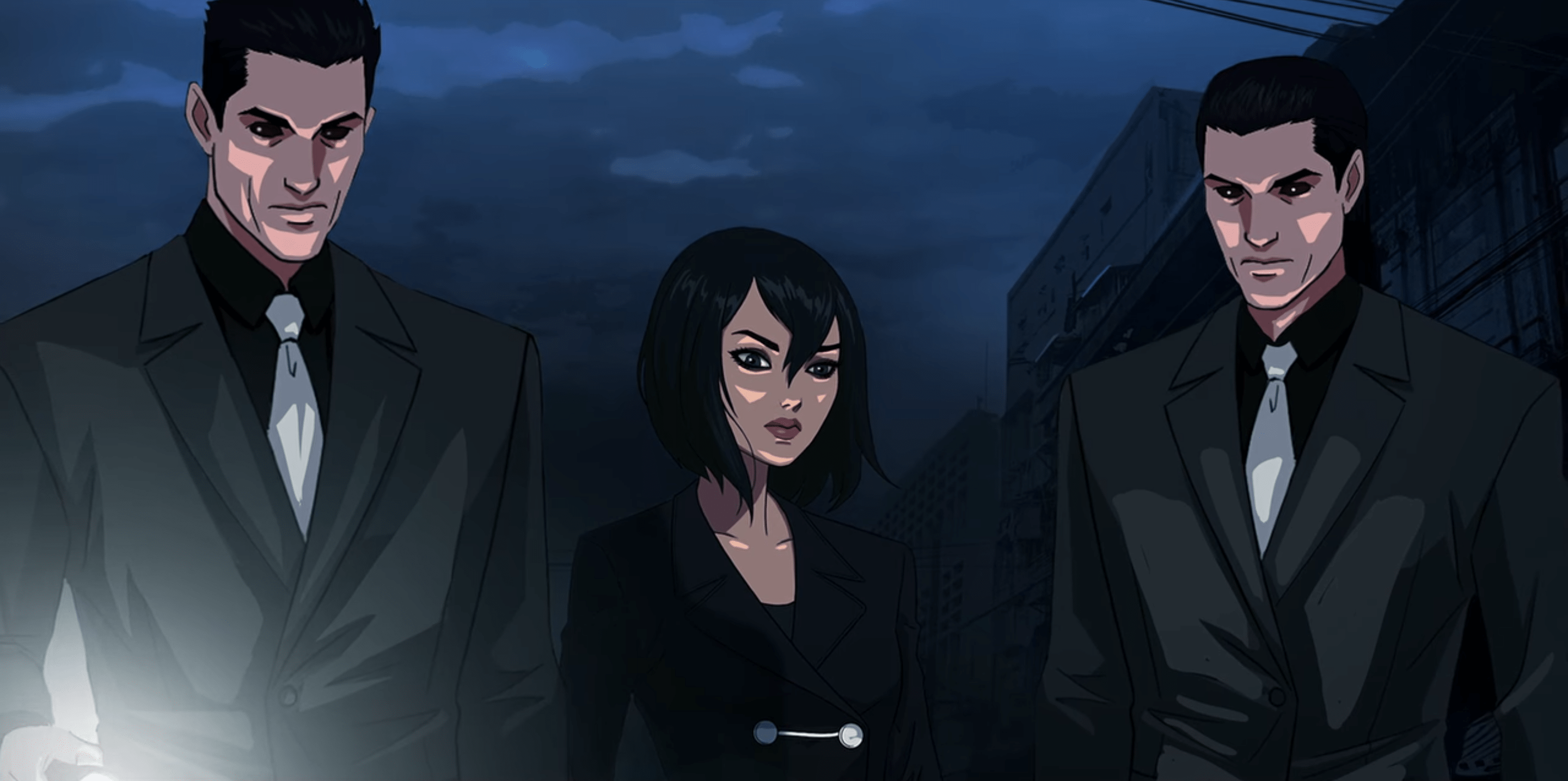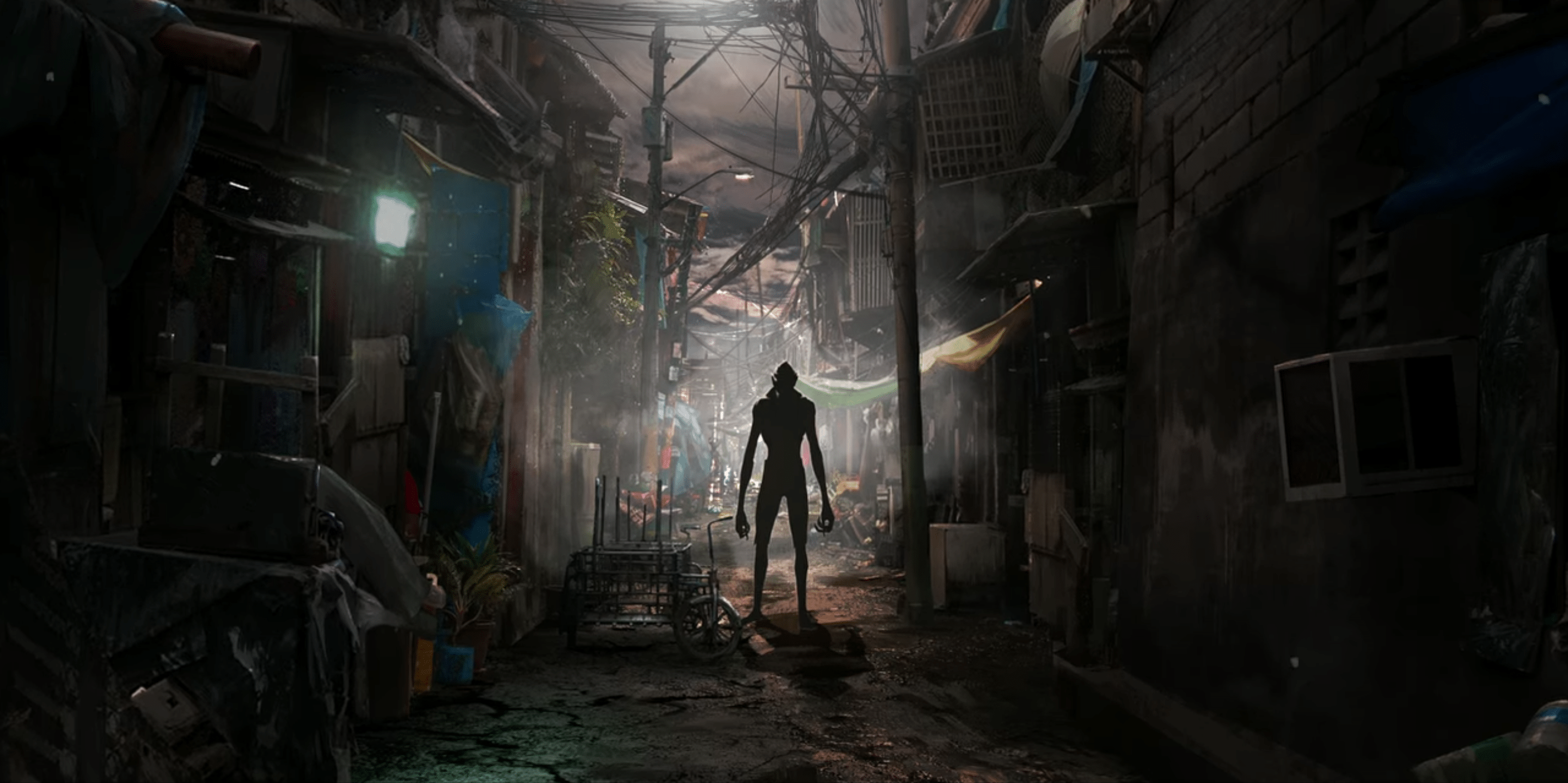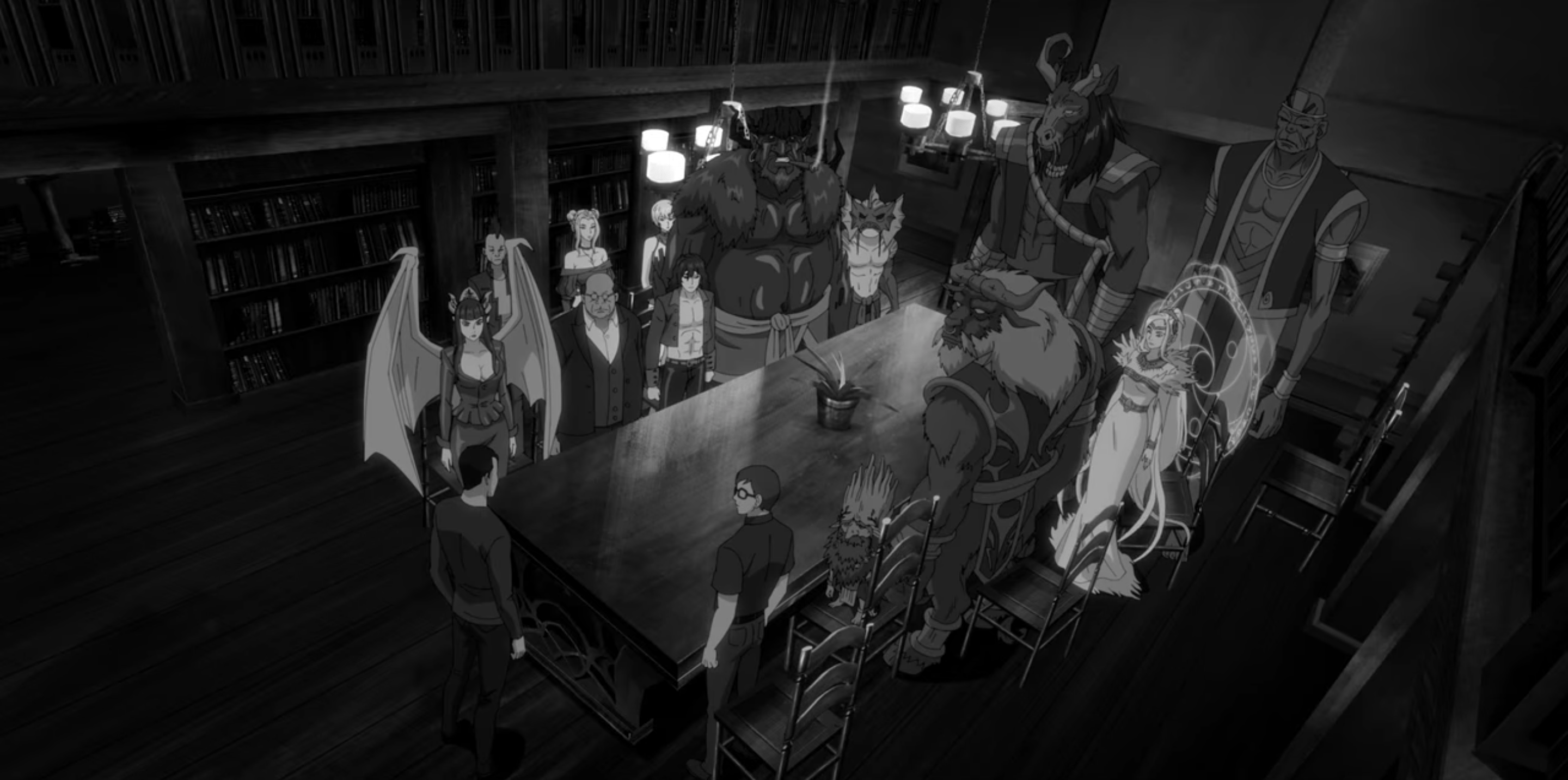
The titular character, Alexandra Trese, with her twin bodyguards, the Kambal
In the Philippines, the supernatural is an intrinsic part of everyday life. Filipinos draw from a rich mélange of animistic beliefs, Chinese superstition, and Catholic ritual. Even in the capital city of Manila, people often pour the blood of livestock on a building’s foundations to repel bad spirits, make detours after attending wakes to shake off any ghosts that might be following, and say “tabi tabi po” when treading on grass so as not to offend any elementals or dwarves that may reside there.
The new animated Netflix series, Trese, takes these myths and superstitions and makes them as real for the rest of us as they are for believers. Based on the popular Filipino comic book series of the same name by Budjette Tan (writer) and Kajo Baldisimo (illustrator), Trese is set in modern-day Manila, but one in which the natural and the supernatural are one and the same. The supernatural is everywhere here: carnivorous aswang form criminal gangs that traffic in human flesh, dwarfish duwende emerge from potted plants, horse-human chimeras called tikbalang race cars along the city streets, lightning elementals run electric companies, and the MRT ferries commuters home from work – and souls to the afterlife. The supernatural world bleeds into ours, and is as dangerous as it is fantastic, for, as the show warns: “When the sun sets, take a turn down a dark alley, and you might find yourself as prey.”

The protagonist of the story is Alexandra Trese, a laconic detective of the paranormal and the lakan, the enforcer of the tenuous peace treaty between the humans and the supernatural. The series follows her as she, along with her gunslinging twin bodyguards known as the Kambal, solves paranormal crimes and tries to keep order as a storm brews over the city.
Trese captures the urban grittiness of Manila: no attempt is made to show its best face, to clean it up for an international audience, instead, like all the other cities in Southeast Asia apart from Singapore, it’s raw, underdeveloped, tropically grimy. Local eateries have tacky-looking plastic chairs of wildly differing size, shape, and colors; the walls of certain buildings are discolored with wet stains. As someone from the region, it feels like home. Issues like human trafficking and military and police brutality are important parts of the plot, and Trese, and her boss, the stolid Captain Guerrero, are cogs in a justice system that is often abusive and corrupt. The series is unapologetically Filipino: even in the English version, Tagalog is used in spells, Filipino slang is dropped into dialogue, many characters speak with a distinct Filipino accent, and its haunting opening theme is derived from a traditional folk song. Lots of other Asian productions try to incorporate local elements but ham it up by awkwardly trying to shoehorn them in in ways that detract from the story (see It’s Already Tomorrow in Hong Kong, Crazy Rich Asians, or anything written by Tan Twan Eng), but Trese weaves them in deftly.
Authenticity alone, of course, is not enough reason to watch anything – something can be authentic, but still bad, and thus not worth your time. Trese, however, combines authenticity with intricate world-building, a riveting plot, fascinating and morally complex characters, and great dialogue. The world of Trese is dark and violent, but the violence here is tastefully done, without descending into gratuitousness. The art and animation are gorgeous. The voice acting is superb too, and the cast of the series includes many famous Filipino actors and actresses. Manny Jacinto, a.k.a. Jason Mendoza in The Good Place, and Dante Basco, a.k.a. Prince Zuko in Avatar: The Last Airbender, play scions of powerful supernatural families, and Nicole Scherzinger of the Pussycat Dolls plays the titular character’s mother. Trese herself is voiced by Shay Mitchell, a.k.a. Peach Salinger in You, in the English version, and Liza Soberano in the Tagalog version. The overall result is a paranormal, Filipino film noir that is both stylish and gripping.

Humans and various supernatural creatures at a council
Is this show perfect? No: the last two episodes felt rushed, and the season finale was slightly anticlimactic. But it certainly deserves a second season, especially since the tale it’s telling is clearly just beginning. Trese shows us the uncanny in the familiar, it invokes a sense of wonder, a sense that, beneath the drab and the mundane might lie a secret world, one that’s both wondrous and terrifying. With many of us stranded due to the coronavirus and forced to put our lives on hold, isn’t that exactly what we need?

